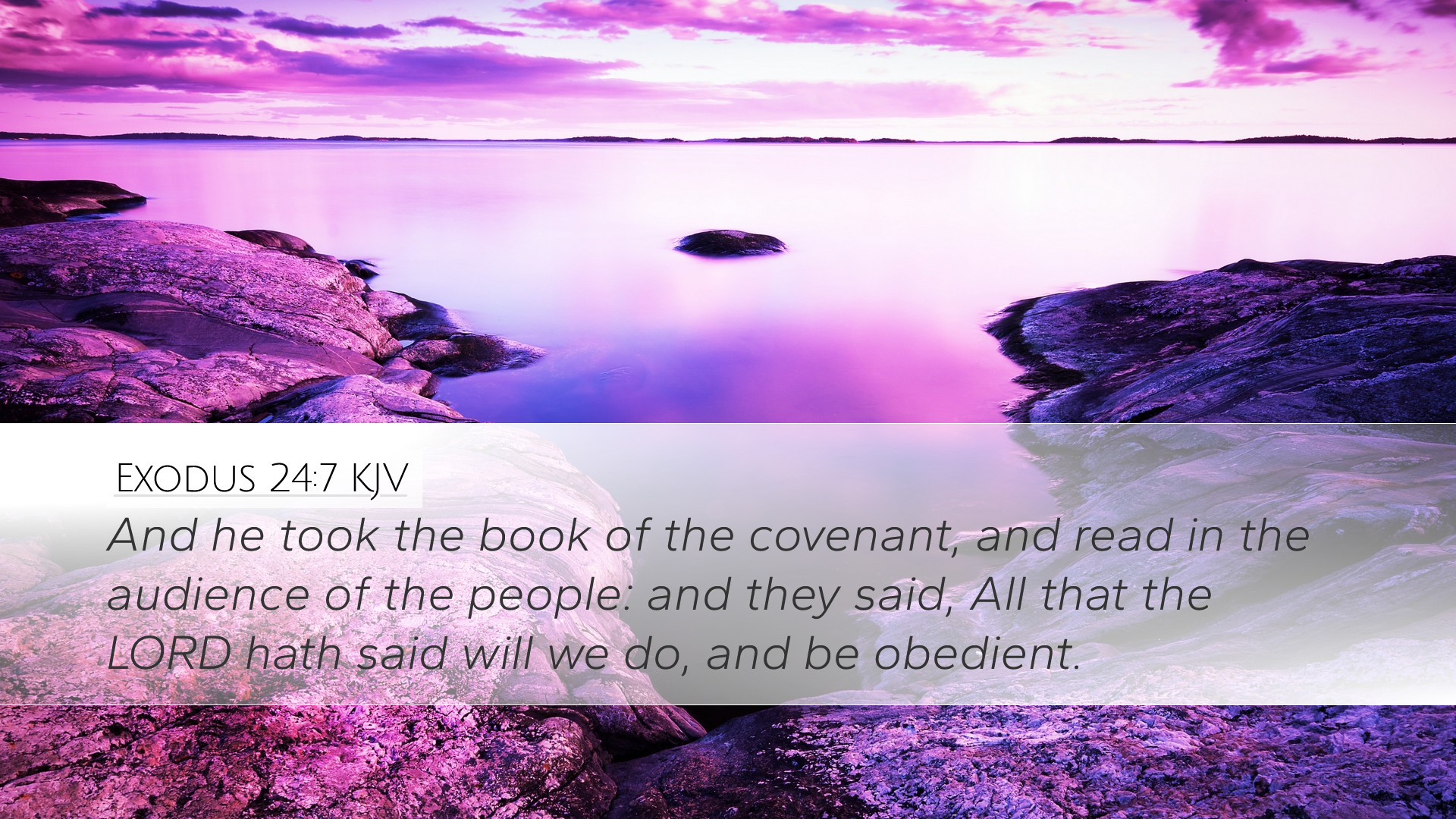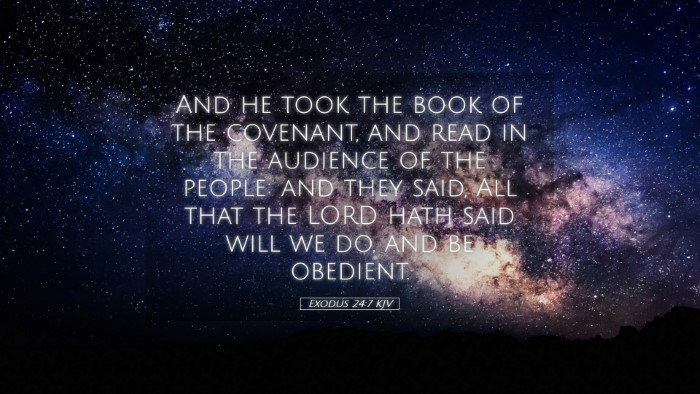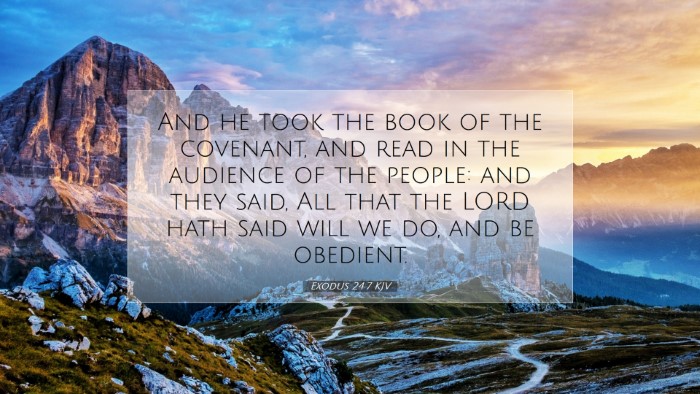Exegetical Commentary on Exodus 24:7
Verse Reference: Exodus 24:7 - "And he took the book of the covenant, and read in the audience of the people: and they said, All that the Lord hath said will we do, and be obedient."
Introduction
The verse under consideration captures a pivotal moment in Israel's history where the covenant between God and His people is reaffirmed through the reading of the law. The acceptance of the covenant by the Israelites is a significant act of commitment and loyalty, establishing the foundation for their relationship with God.
Contextual Background
This passage occurs after the giving of the Ten Commandments and encompasses the broader context of God establishing His covenant with Israel at Mount Sinai. The people witnessed God's glory and His holiness, which set the stage for their commitment to obey His commandments.
Commentary Insights
1. The Book of the Covenant
Matthew Henry: The "book of the covenant" referenced here signifies a formal document that embodies the terms of the covenant between God and Israel. Henry emphasizes the importance of this written record, as it serves to remind the people of their obligations and duties.
2. Public Reading and Its Import
Albert Barnes: Barnes notes that the act of reading the covenant in the presence of the people was crucial. It was a public declaration that ensured the entire community was informed of their commitments. This act fostered collective responsibility, as everyone heard the terms and agreed to abide by them.
3. The People's Response
Adam Clarke: Clarke provides insight into the response of the people, "All that the Lord hath said will we do." This statement reflects their willing acceptance and readiness to adhere to the divine statutes. The repetition of the phrase underscores the gravity of their commitment, establishing a pattern of obedience expected from God’s people.
Significant Themes
- Commitment: The Israelites' pledge signifies deep commitment. Their response indicates not only an acknowledgment of God’s sovereignty but also an eagerness to follow His lead.
- Covenant Relationship: This verse illustrates the very nature of the covenant between God and His chosen people. It is a two-way relationship that requires both divine promises and human obedience.
- Community Covenant: The public nature of the reading exemplifies how faith and obedience extend beyond the individual to encompass the whole community, enhancing the collective identity of God’s people.
Theological Implications
The granting of the law and the people's acceptance highlight the principles of divine authority and human response. This dynamic invites pastors, theologians, and scholars to reflect on how these principles apply in contemporary worship and living.
1. Divine Authority
The act of God providing a written law illustrates His sovereign authority, indicating that divine commands are not arbitrary but reflect His character and holiness. This is particularly relevant for pastoral teaching, as it ties into the necessity of obedience in the life of believers.
2. Human Agency and Response
The response of the people emphasizes human agency in the covenant relationship. Their willingness to obey is not merely passive acceptance; it demonstrates active engagement with God’s requirements.
Practical Applications
- Encourage Public Engagement with Scripture: Churches can adopt practices that encourage congregational engagement with Scripture, much like the Israelites’ collective hearings.
- Foster a Commitment to Obedience: Pastors can challenge their congregations to consider their commitment to God's word and its application in their lives.
- Strengthen the Community of Faith: The public acknowledgment of faith can be a powerful tool to strengthen the bonds within a community, emphasizing shared beliefs and mutual support.
Conclusion
Exodus 24:7 encapsulates the essence of the covenant relationship wherein human response to divine command is paramount. Public domain commentaries by Matthew Henry, Albert Barnes, and Adam Clarke provide rich insights that emphasize the importance of commitment, the role of communal covenant, and the applicability of these principles to modern faith contexts. As leaders and scholars reflect on this verse, they are invited to challenge themselves and their communities to deepen their understanding and practice of God’s commandments in their lives.


